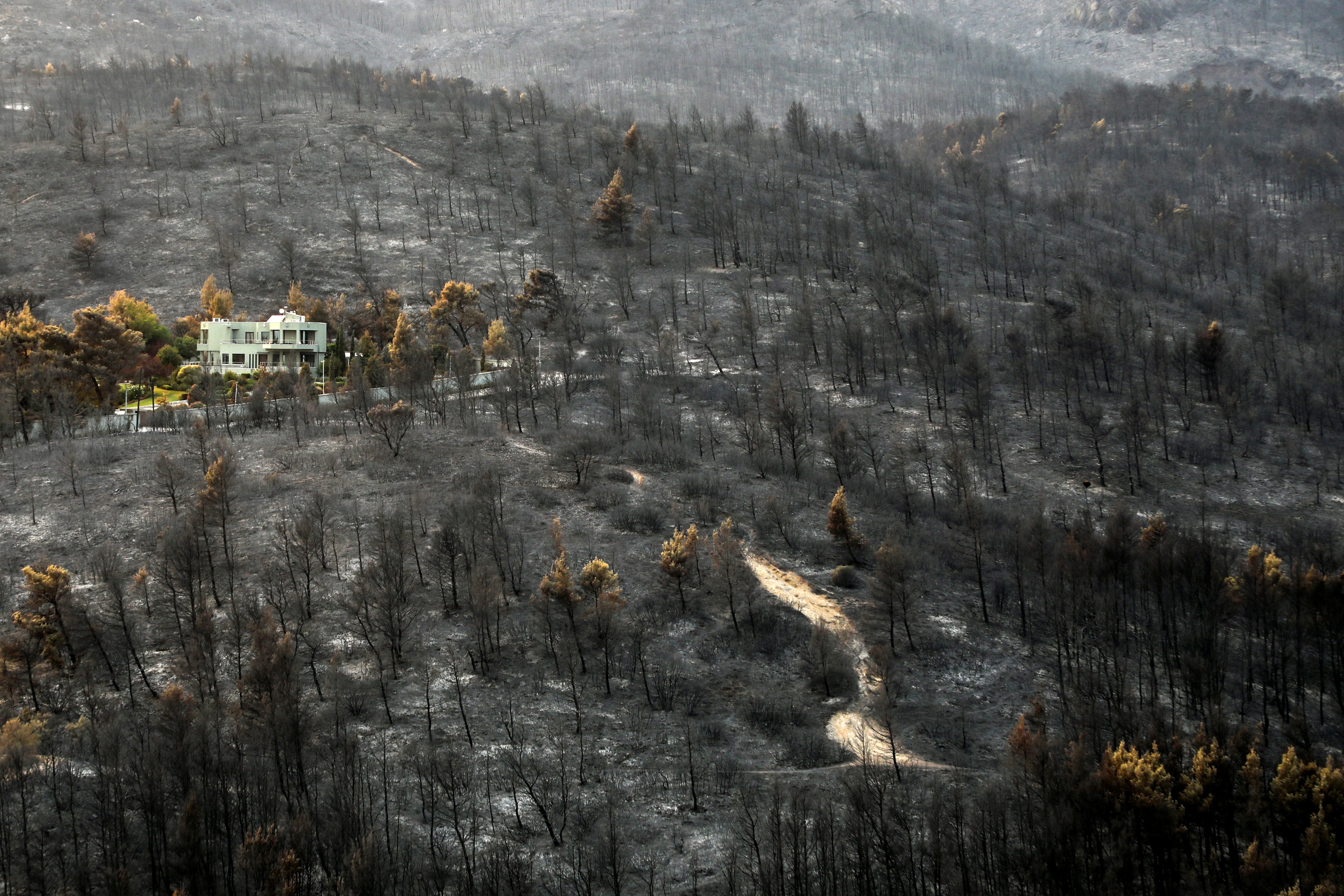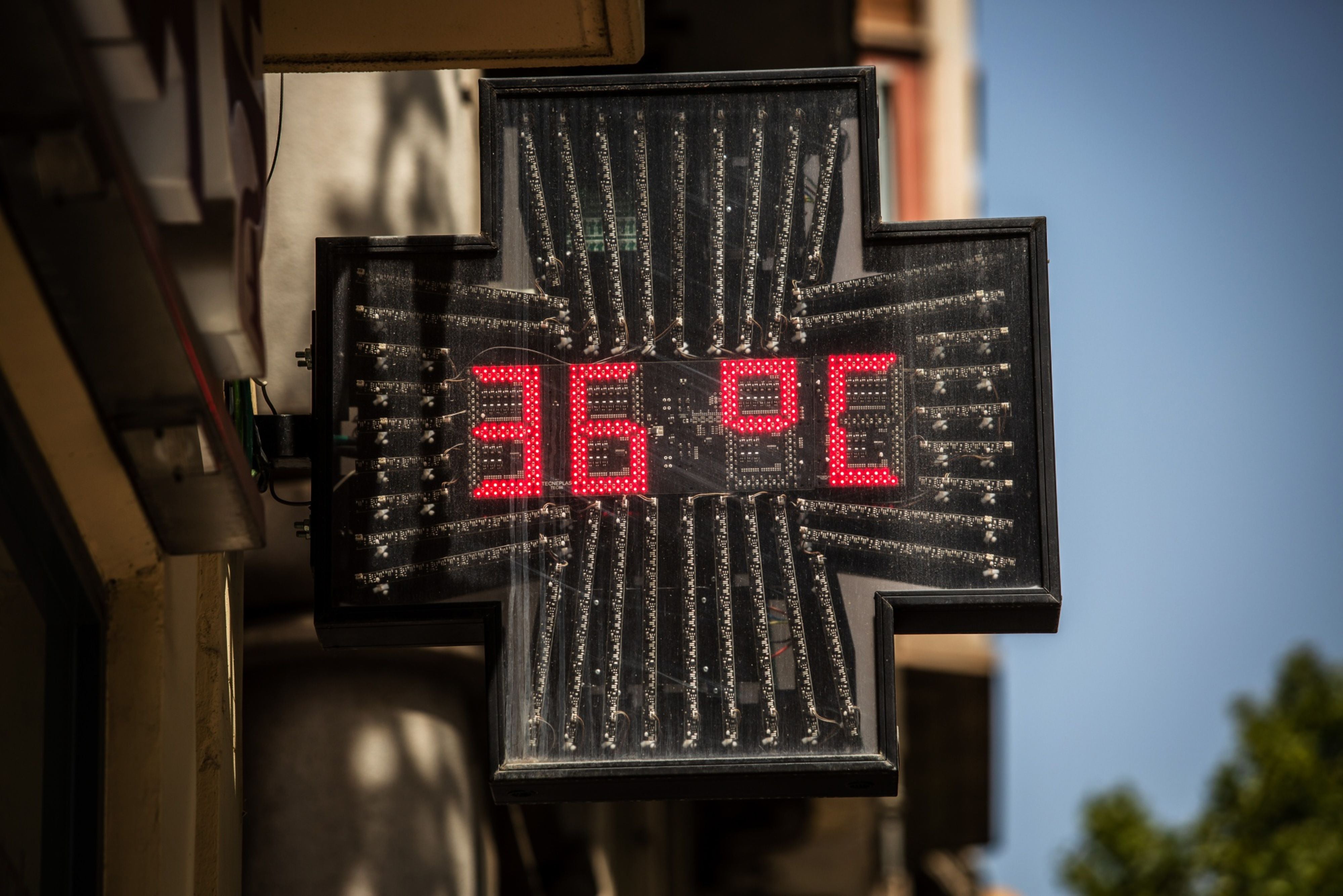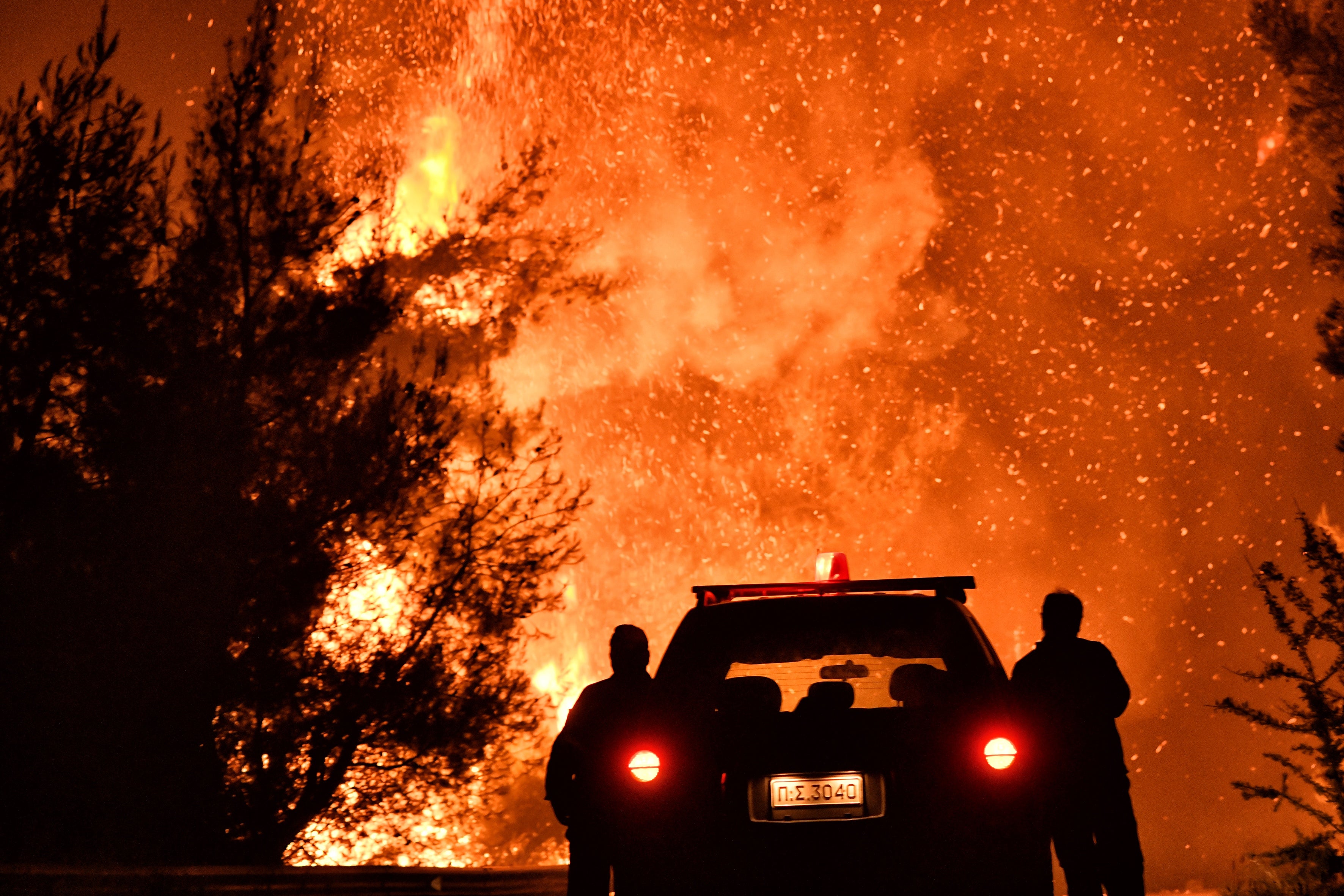What can we learn from Europe’s blazing summer?
Wildfires are becoming an increasingly regular feature of summers across the world. Laura Millan Lombrana asks what can we learn from the past season in Europe

Your support helps us to tell the story
From reproductive rights to climate change to Big Tech, The Independent is on the ground when the story is developing. Whether it's investigating the financials of Elon Musk's pro-Trump PAC or producing our latest documentary, 'The A Word', which shines a light on the American women fighting for reproductive rights, we know how important it is to parse out the facts from the messaging.
At such a critical moment in US history, we need reporters on the ground. Your donation allows us to keep sending journalists to speak to both sides of the story.
The Independent is trusted by Americans across the entire political spectrum. And unlike many other quality news outlets, we choose not to lock Americans out of our reporting and analysis with paywalls. We believe quality journalism should be available to everyone, paid for by those who can afford it.
Your support makes all the difference.Growing up in Catalonia, along the shores of the Mediterranean Sea, meant bumpy bike rides, long siestas and many, many memories of fire.
Some are good, like jumping over bonfires as we celebrated the summer solstice, or teasing fire-spewing beasts and demons at local festivals. Others are less so – the hideous breath of a wildfire closing in on a village on an August evening, my father volunteering to help firefighters put out the embers armed with just a pair of gloves and a carton of milk to clear his throat of smoke and ash.
Fire and the Mediterranean are inseparable. It's been that way for more than 2,000 years. Verses about flames assailing thick woodlands dot Homer's Iliad. Greek merchants named the Pyrenees mountain range after the flames they saw burning its peaks from their ships.
It's tempting to dismiss this summer's blazes as more of the same. After all, some might say, our dear old Med has been burning for as long as humanity can remember.
But that would be a mistake. Many of the fires the Greeks saw were lit by farmers who knew how to manage forests. The Mediterranean today is hotter and drier. Many people have abandoned rural areas for the cities, leaving timber and bushes as tinder.
“There was a time when there was much more fire in the landscape, but it wasn't a disaster because people had a feeling for it. They managed it better because they understood it better,” said Alexander Held, a senior expert at the European Forest Institute. “It was a different society back then – and a different fire.”
Scientists are more certain than ever that manmade climate change will make the Mediterranean more prone to disastrous blazes. Even if we manage to cut greenhouse gas emissions sharply, temperatures will keep rising for the next few decades.
We have no choice but to brave the flames. Two fires this summer hold lessons of how this can be done – and the dangers of not doing it properly.
On 14 August, a car broke down on the side of a road in the Spanish province of Avila; its engine caught fire soon after. The flames sparked at the worst possible time, on the hottest day of a record-breaking heatwave that took thermometers in many parts of Spain well above 40C.
Things didn’t turn out as well in Algeria, where fires started to burn on 9 August. Two days later, authorities issued a heatwave alert, warning of temperatures as high as 47C and strong winds
Strong winds fuelled the fire, which spread quickly over dry vegetation, burning through 22,000 hectares and making it the largest in the Castilla y Leon region in at least five decades. About 1,000 people were evacuated. The government deployed almost 200 soldiers from an army unit that specialises in emergencies, along with hundreds of firefighters.
They didn't just throw water on the flames. There were no firewalls to contain the blazes, so they used heavy machinery to open large trenches. Around urban areas, expert teams lit so-called technical fires, using controlled burning of surrounding vegetation to halt the wildfire's advance.
Spain's Forest Fire Assessment and Advisory Team, also known as FAST, was deployed for the first time ever. The group of six fire experts worked from a command post on the ground, advising officials on how to attack the blaze.
“When there's a big fire there's so much noise, so many resources that you have to handle at the same time, that sometimes controlling the wildfire gets in a secondary place,” said Elena Hernandez, service manager for the Spanish Forest Fires Service. “These experts know the dynamics of wildfires, how to identify weaknesses, opportunities and critical areas that will help extinguish the fire.”
Things didn't turn out as well in Algeria, where fires started to burn on 9 August. Two days later, authorities issued a heatwave alert, warning of temperatures as high as 47C and strong winds. At least 70 blazes were detected over the following week, mostly in the Kabylia region.

Northern Africa's heat dome caught the Algerian government off-guard and poorly-equipped, with no water bombers to call into use. Officials rejected help from other countries including France, Morocco and Tunisia. The latter two also suffered severe wildfires this summer but have reported no deaths so far.
Algeria's first move was to send in the military – footage on social media showed soldiers equipped with shovels and submachine guns. Volunteer citizens then jumped to the rescue, armed with buckets and tree branches.
The fires burned through about 89,000 hectares and killed at least 90 people, a quarter of whom were army soldiers.
“It was human error and a lack of preparation and training that caused this loss of life,” Held said. “Soldiers were sent into a very difficult terrain, with very difficult weather, without any training and no supervision from anybody with fire behaviour experience.”
Authorities blamed arsonists and arrested 22 people. In a horrifying turn of events, a young man named Djamel Bensmail was lynched by a mob that accused him of lighting the fires. It later emerged that he was an artist, social activist and volunteer firefighter.

The tragic aftermath of the fires, together with viral videos of Bensmail's killing, have shaken the Algerian regime, already embattled by political tensions and a depressed economy.
“You need to be prepared, to have the resources, the skill and the knowledge,” Held said. “But just like in California and Australia, you need to understand there comes a point where these fires are beyond the threshold of control in terms of intensity and numbers.”
The key is to not reach that point of no return, experts say. And the only way to do that is to implement land and forest management techniques well before a fire starts.
“We have to accept that we have to live with wildfires and we have to adapt our way of living to them,” Hernandez said. “We need to work on creating resistant and resilient landscapes and societies that know how to react when there is a wildfire.”
Bloomberg's Souhail Karam contributed to this report.
© Bloomberg



Join our commenting forum
Join thought-provoking conversations, follow other Independent readers and see their replies
Comments